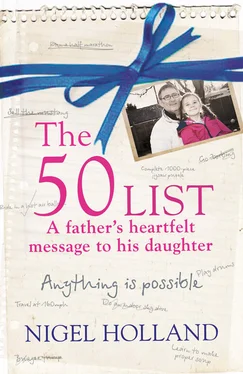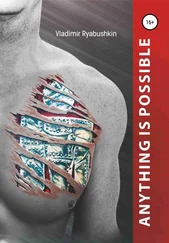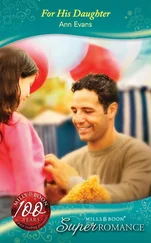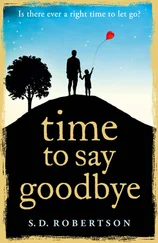* * *
Despite us having very little materially then, compared to today’s festive excesses, it really did feel like a time of plenty. It was a time when not only did the dustmen get a crate of brown ale from Dad, as an annual thank you, but also the entire contents of the drinks cabinet (actually the sideboard) were brought out on top, dusted off and arranged, like a help-yourself bar at a wedding reception. It was a time of corner-to-corner paper streamers in the living room and glittering skeins of tinsel for the tree. Which was, of course, a real one.
It’s a cliché now, but we did all really get tangerines in our stockings, plus chocolate (festive chocolate, obviously: golden coins, or Lindt kittens) and a pack of playing cards or some little toy. I remember one year getting a yoyo and not having a clue what to do with it, so I just swung it round and round my head, nearly taking out the light fittings.
The presents done – a military exercise, involving four piles, four anxious children and then one unholy scramble – we children would accompany Dad, playing family postman, delivering gifts to all our relatives while Mum got on with lunch. And what a lunch it was, because Mum was a fantastic cook, and made the best onion bread sauce on the planet, bar none.
The drink of choice on Christmas Day chez the Hollands was Pomagne. A poor man’s champagne, made from cider, it felt like the height of sophistication – or would have, had Dad been more adept at handling it. It was always a tense moment when he attempted to get the cork out, ever since the year when it flew out, headed for the ceiling at great velocity, came back down and landed in the gravy boat, propelling most of its contents all over my brother Mark.
Lunch over – and perhaps as a result of the Pomagne – Mum would always tell her annual Christmas joke. Which was a pretty ropey one, but, in keeping with the spirit of the occasion, we didn’t care: we’d roll about at every telling.
Mum: ‘What did the elephant say when the mouse ran up its trunk?’
Us: ‘We don’t know. What did the elephant say when the mouse ran up its trunk?’
Mum (pinching her nose hard together with her thumb and forefinger and speaking in a squeaky voice): ‘Hmm! I suppose you think that’s funny!’
You’re right. You probably had to be there.
But for all the joy of my childhood, it wasn’t without its worries. Though I was unaware of it, my parents were becoming anxious about me. I must have been around three or four when they first started noticing problems with my toes. They would curl up every time I tried to put my feet into my wellington boots. I was OK with shoes and sandals, but there was something about the angle your foot is at when you feed it into a wellington boot that gave me problems. Once my toes were inside, I couldn’t seem to straighten them out by myself. My parents also noticed that my gait wasn’t quite natural; I would walk in a way that perhaps I would today describe as ‘hopeful’, flicking my lower legs forward, rather than placing them as you would normally, in the hope that the heel would hit the ground before the toes did. If the latter happened (and as I grew, this became more and more evident), the result – flat on my face – sure wasn’t pretty.
I had no idea how much this concerned them, obviously. My toes did what they did, and my gait was what it was. I felt no frustration about any of this; I just worked around it. I was only little, after all. I knew no different.
I had other things on my mind, in any case. While Mum and Dad tried to rationalize their concerns by saying my problems were just part of me ‘growing up’, I was much more concerned with that other big growing-up thing: not being a baby any more, I couldn’t wait to start school. With two big brothers already there, I was aching to join the party. I didn’t want to be stuck at home with only my little sister for company; I wanted to be where the big boys were.
When my brother Gary announced one morning that today was the day, my excitement at going knew no bounds. But I was destined for disappointment. The first disappointment was the news, once we arrived there, that I wouldn’t be joining my big brothers in the junior school as I’d expected. I would have to go elsewhere – well, a whole playground away, anyway – as I was only old enough, apparently, to join the infants. The second disappointment was that as soon as Mum left, all my confidence went scuttling away with her. Within the space of a few hours I’d had all the stuffing knocked out of me; I felt anxious, alone and very lost.
Thankfully, the feeling didn’t last. In fact, another revelation was that the business of making friends there was unexpectedly straightforward, and seemed to consist of the simplest of exchanges.
‘This your first day?’ a boy said.
‘Yes,’ came my mumble.
‘OK. Wanna play football?’
Job done.
Best of all was that it seemed to work with almost everyone (bar the girls, of course). You played football with someone and you had a friend for the rest of your natural life. Or at least for the immediate future, till the bell went, which, as with any four-year-old, was as far ahead as I generally thought.
But the problems with my curling toes weren’t going away and had now started to impact on my getting dressed for school. It had begun to take me so long that Mum even began stressing that I’d become phobic about going for some reason.
Nothing could have been further from the truth. I loved school. But certain aspects of it were becoming more challenging for me, clearly. And though, once again, I wasn’t really aware of this myself, my parents became increasingly concerned. Their concern mostly centred on my gait. I didn’t walk like my siblings and no one knew why – and my gait definitely wasn’t getting better. After a couple of months of this, my mother made her mind up: she would take me to the local clinic to see a doctor.
I still remember my incomprehension about this visit. I wasn’t feeling sick, and nor did I have a sore throat or a rash, but even so, I was being taken out of lessons. Why was that? I was no less confused when we got there and the doctor immediately took off my shoes and socks and began tapping my ankles with a little rubber hammer.
But it was my mum who was most confused when, the foot inspection over, the doctor turned his attention to my arms and hands. She was just about to ask him what my hands had to do with anything when he let out a loud and alarming ‘Hmmmm …’
‘What?’ asked Mum anxiously.
‘Hmmm …’ said the doc again. ‘I think young Nigel here needs to go and see a specialist.’
He then began talking over my head, to my mum, while she helped me put my shoes and socks back on. I didn’t understand much of what he was saying – though I soon would – but the gist of it seemed clear: ‘I don’t actually have a clue what’s wrong with your son, Mrs Holland, so I’ll pack him off to someone who might.’
On the way home, feeling as you do after a visit to the doctor (a little bit relieved, a lot brave, a tad martyred), I hoped – even expected – that there might be something in it for me. A small toy perhaps, a bag of sweets, a penny lollipop. But I got nothing. Mum was never one for over-indulging her kids. I got deposited straight back at school.

Number of inches of snow dumped on Wellingborough in January: Easy – more than enough to prevent me from getting out.
Читать дальше













